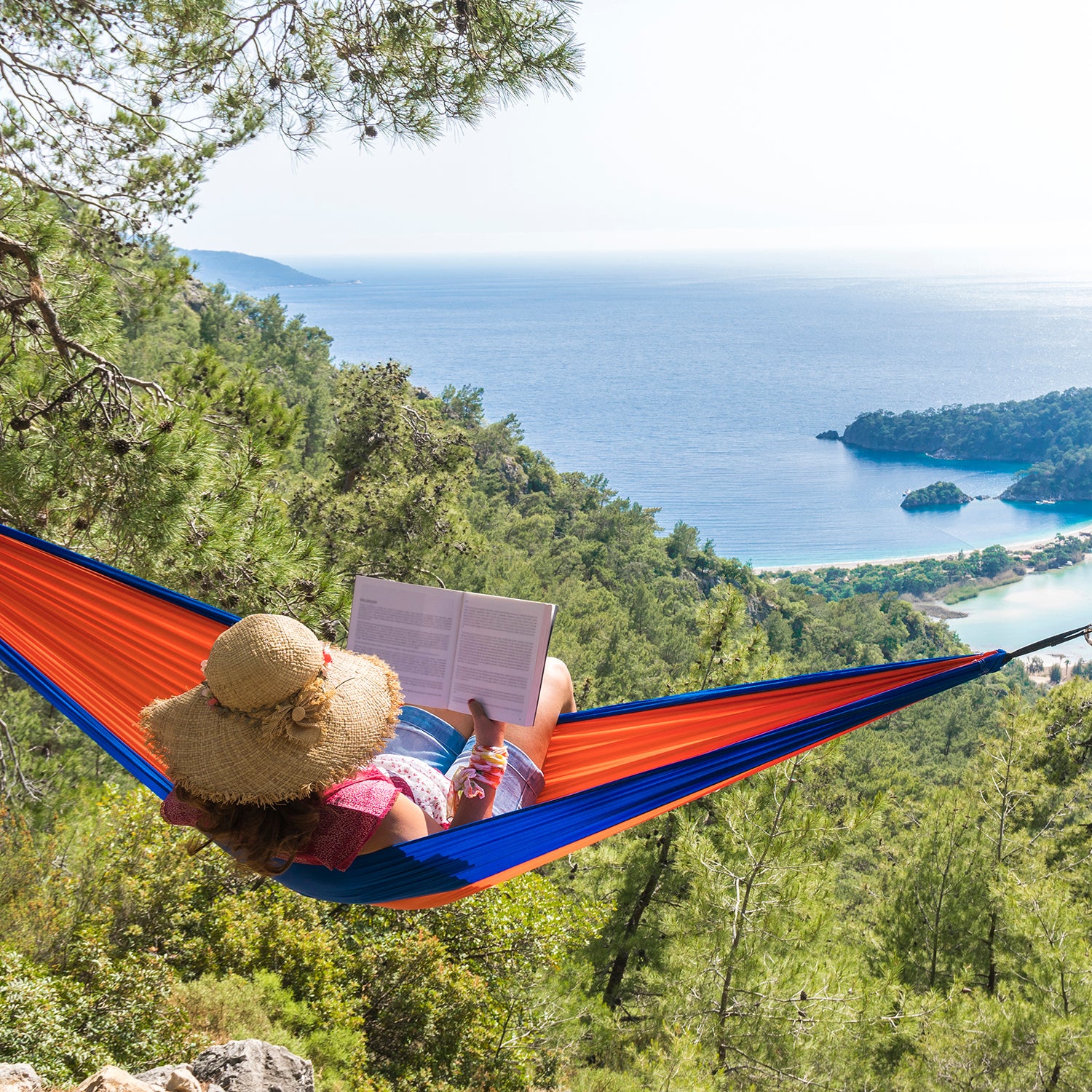When I worked as an editor at �����ԹϺ���, the formula for a typical adventure memoir often read like this: get trapped in blizzard, trigger avalanche, capsize in Southern Ocean, watch as climbing partner falls hundreds of feet to certain death. But now the adventure world has become much more open to things that were rarely mentioned back then: mental illness, body image, trauma.
This opening has made room for a new kind of exposure in the wild. These books reveal what’s really going on for the people writing them, with room for honesty, vulnerability, grief, and questions without easy answers.
These are the books I’m reading this summer, many of them by longtime �����ԹϺ��� contributors.
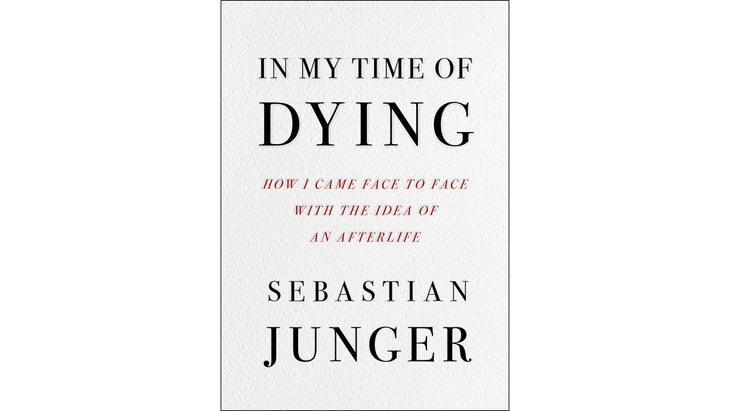
1. In My Time Of Dying: How I Came Face to Face with the Idea of an Afterlife, by Sebastian Junger
After years as a combat reporter in some of the most dangerous places on earth, Junger was weathering the pandemic on Cape Cod with his wife and two young daughters when he doubled over in pain. As doctors worked to save his life—his pancreatic artery had burst—Junger crossed a threshold. “I became aware of a dark pit below me and to my left. The pit was the purest black and so infinitely deep that it had no real depth at all. It exerted a pull that was slow but unanswerable, and I knew that if I went into the hole, I was never coming back.”
Junger, an �����ԹϺ��� contributor and the author of The Perfect Storm (among many other books), thankfully did come back, with this searching meditation on what life—and death—mean to all of us. “You will know yourself best at that moment; you will be at your most real, your most honest, your most uncalculated. If you could travel back in time to make use of such knowledge during your life, you would become exactly the person you’d always hoped to be—but none of us do that. We don’t get that knowledge until it’s too late.”
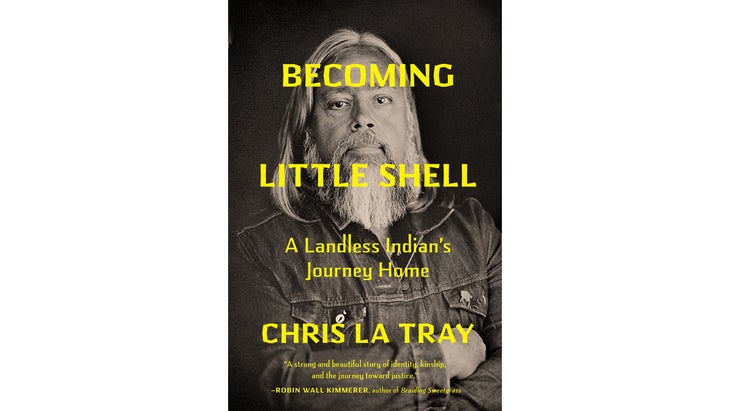
2. Becoming Little Shell: Returning Home to the Landless Indians of Montana, by Chris La Tray
Montana poet laureate Chris La Tray’s father wanted no part of his Chippewa heritage. So much so that when young Chris went to his grandfather’s funeral, he was floored to see that most of his relatives were Indigenous. “Here was a collection of people I’d never known but was clearly connected to,” he writes. “Who were they? Why didn’t I know them? Why was I never allowed to know them?”
La Tray’s chronicle of his journey to track down that heritage is as much a history of a forgotten tribe struggling to get federal recognition as it is a personal homecoming. When he is finally accepted as an enrolled member of the Little Shell Tribe of the Chippewa Indians, “The moment is overpowering,” he writes. “I take a breath. I’m part of this, part of them. I wipe the sweat from my brow and take a quick look around me for snakes. Then I follow the trail down the slope, across time, through genocide and diaspora, and fear and death and now rebirth, to food, to companionship, and increasingly, to community.”
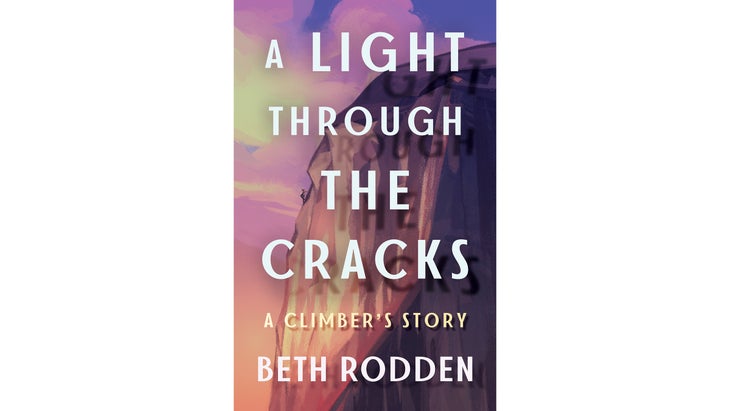
3. A Light Through the Cracks: A Climber’s Story, by Beth Rodden
Beth Rodden sheds her skin as climbing’s girl next door to write with honesty and precision about the years-long buried trauma that followed her infamous 2000 kidnapping—in which Rodden, Tommy Caldwell, and their climbing partners were shot at by Islamic militants while big wall climbing in Kyrgyzstan. But she also reveals harder things: the disordered eating rituals she used to believe helped her float up rock and the desire that awakened when she left Caldwell for her now-husband Randy.
Ultimately, she shares a newfound strength as a happier mother and wife, one who uses her squishy mama belly as just another climbing tool, her flesh “wrapping around the rock like cling wrap on a chocolate chip cookie.” As Rodden realizes, “I had treated myself like a robot for so long, thinking my discipline made me better than regular people. I finally understood that pursuing ‘greatness’ didn’t fill me the way a ‘normal life’ did. If I wanted to have a big life, I needed to live a smaller one.”
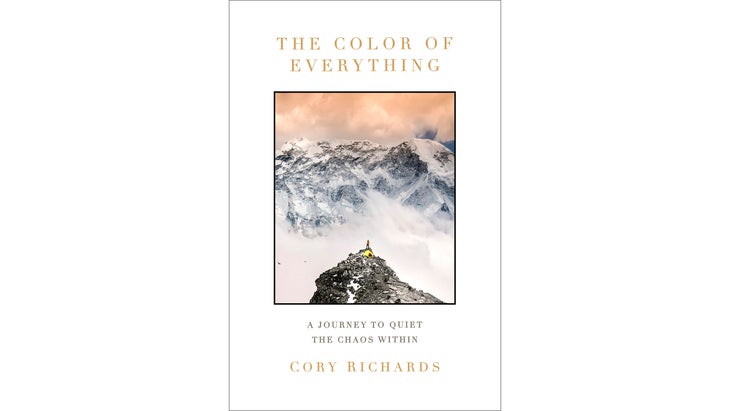
4. The Color of Everything: A Journey to Quiet the Chaos Within, by Cory Richards
Rarely, if ever, has a climber produced a more searing survival story. Among the things that photographer Cory Richards has survived: summiting Everest without oxygen; windstorms at 25,000 feet; and the 2010 avalanche on the Pakistani peak Gasherbrum II that launched his self-portrait onto the 125th anniversary cover of National Geographic. But what he has endured is much harder: his brother’s fists; unwilling stays in rehab facilities and institutions; recurring panic attacks; and hollow mornings after paid-for sex.
Richards holds almost nothing back, owning the psychiatric diagnoses that have saddled him since he was a boy. “I chose to live madly to outrun madness itself,” he writes. “I’ve thought that by rebellion, doing more, being better, and being different, I might be able to out-climb, out-explore, or out-create the disquiet of my mind. But what if the noise and madness were the gift?”
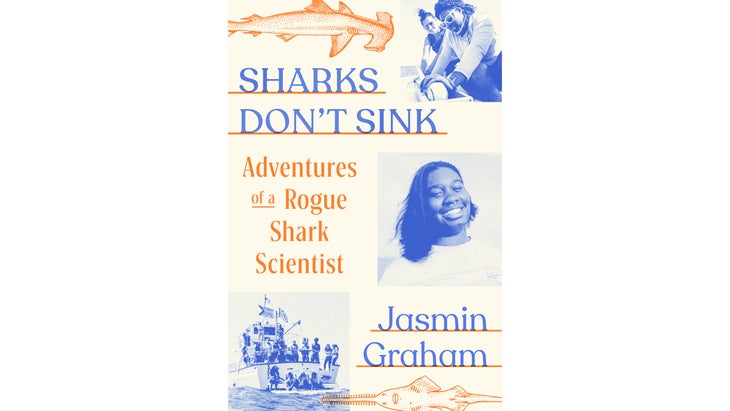
5. Sharks Don’t Sink: �����ԹϺ���s of a Rogue Shark Scientist, by Jasmin Graham
When she was six, Jasmin Graham’s father gave her a yellow Tweety Bird fishing rod and took her fishing off the pier in Myrtle Beach, South Carolina. So began a love of the ocean that led her to a master’s in marine biology and a career as a shark scientist—a dream come true even if being a young Black woman scientist also came with sexism and racial microagressions.
Burned out and scrolling Instagram late one night, she was startled alert. “My life was changed forever by a single photograph,” she writes. “It was of a Black female researcher floating underwater with an adorable nurse shark. I felt like I had discovered a unicorn.” As a result, she and three other Black shark experts founded the nonprofit to generate more opportunities in the field.
“I see myself and my people in sharks,” Graham writes. “All too often Black people are perceived and treated much like sharks: feared, misunderstood, and brutalized, often without recourse; assumed to be threatening when so often we’re the ones under threat; portrayed unfairly in the media, so that others are predisposed to have a negative interaction with us.”
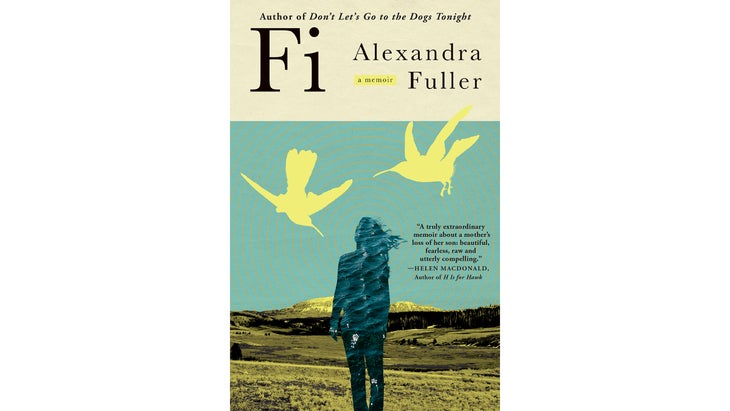
6. Fi: A Memoir, by Alexandra Fuller
In her darkest hour, Alexandra Fuller retreats to a sheep wagon in a high alpine meadow where she can be alone in the agony of her grief. Her son Fuller, or Fi, has just died from a seizure at the age of 21—“in the fatness of summer, in the fullness of youth, on the brink of manhood”—and the wild is the only place she can exist as she breaks apart.
The author of four previous memoirs, including the award-winning Don’t Let’s Go to the Dogs Tonight, Fuller raised her children in Wyoming with echoes of her own wild childhood in Zimbabwe, picking them up after school on horseback, “whooping and hollering, cantering home through aspen groves, horses steaming, dogs panting.” As she tells Fi’s surviving sisters, “He’s our ancestor now. Our young ancestor: feel him in the wind and the sun and the trees, feel him there.”
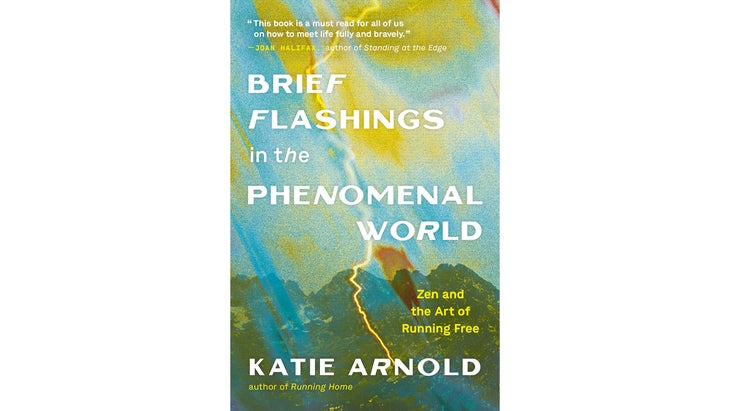
7. Brief Flashings in the Phenomenal World: Zen and the Art of Running Free, by Katie Arnold
A former editor at �����ԹϺ��� and a frequent contributor, competitive ultrarunner Arnold was celebrating her tenth anniversary on Idaho’s Middle Fork of the Salmon River when the raft flipped, ejecting her into the shallow water and shattering her tibial plateau. Her husband was at the oars, and back home she finds herself immobilized, seething with anger at him she can’t burn off. The brief flashings in the title come from Zen Mind, Beginner’s Mind, the classic collection of talks by the late Japanese Zen master Shunryu Suzuki, who describes the everyday awakenings we all experience as “flashings in the vast phenomenal world.”
As Arnold writes, “they are happening all around us, all the time—while eating an ice cream cone or riding our bike or sitting broken beside a river—but we’re usually too distracted to notice.” With Suzuki Roshi as her guide, Arnold begins again, putting one foot in front of the other, back to her husband—whose equanimity, she realizes, makes him a natural Zen master—and all the way to victory at the Leadville 100 ultramarathon.
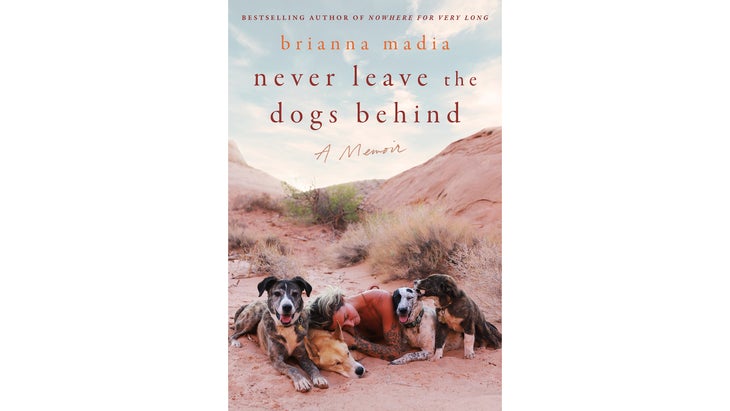
8. Never Leave the Dogs Behind: A Memoir, by Brianna Madia
We love it when influencers expose their vulnerabilities, but the mercurial social media world can quickly turn against them. Brianna Madia ( and author of the bestseller Nowhere for Very Long) watches her #vanlife bubble pop when she and her ex-husband’s dog Dagwood gets run over. A GoFundMe campaign saves Dagwood’s life, but when Madia admits that it was their own van that hit the dog, she’s the one who takes the blame for not disclosing it sooner. Never mind that her ex was the one driving.
The resulting online bullying is epic and profane, with multiple subreddit threads devoted entirely to proving her a fraud. Holed up in a trailer in the desert outside Moab with her four dogs, Madia hits red-rock bottom. Her recovery, in its tenuous progress, feels raw and believable in the book. And when she enlists a digital forensic investigator and reveals the real names of internet trolls stalking her—well, now who are the ones exposed?
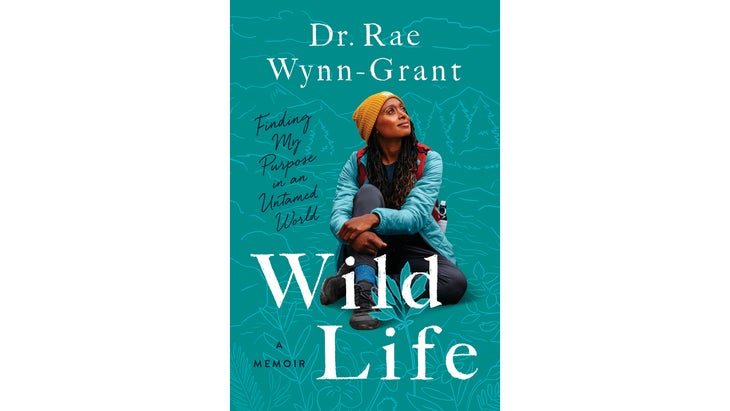
9. Wild Life: Finding My Purpose in an Untamed World, by Rae Wynn-Grant
Rae Wynn-Grant knew what she wanted at a young age: obsessed with wildlife shows hosted by Marlin Perkins and Steve Irwin, she casually told her parents one night at dinner that she was going to host a nature show on TV. Never mind that she lacked the three attributes she figured were essential: being white, male, and having a British or Australian accent.
Today Wynn-Grant is a wildlife ecologist, National Geographic Explorer—and, like her hero Perkins—co-host of Mutual of Omaha’s Wild Kingdom reboot, Protecting the Wild. “One thing that I didn’t anticipate was that the knowledge I gained in the field, studying predators and their prey, would apply to my own life,” she writes. “As a young Black mother and professional, I’ve built a career for myself in a space dominated by older white men and charted my own path in a society riddled with ill-fitting expectations.”
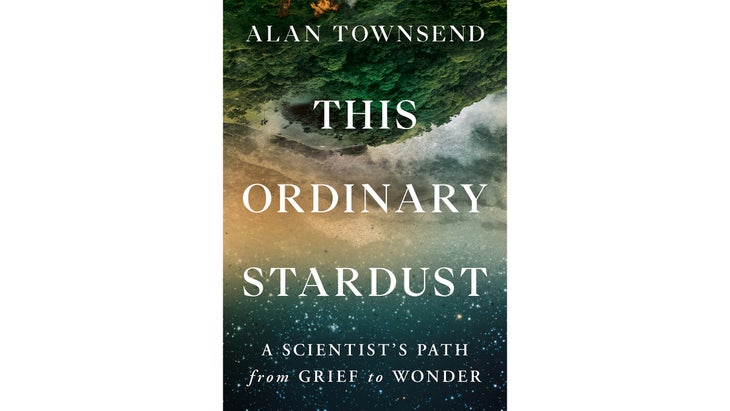
10. This Ordinary Stardust: A Scientist’s Path from Grief to Wonder, by Alan Townsend
“While our flashes may be brief,” writes Alan Townsend in this remarkable memoir, “some of them are impossibly bright, and everything that matters is contained in the ways your own light sparks the ones that lie in everybody else.” Townsend, an ecosystem ecologist and dean of the University of Montana’s College of Forestry and Conservation, finds his own ecosystem rocked when both his wife and four-year-old daughter are diagnosed with brain tumors.
His wife, a dedicated scientist herself, shows him how to walk through uncertainty with grace and light, while his young daughter possesses a heart as big as the giant stuffed lion that is her companion in the hospital. It is science, in the end, that offers Townsend some measure of comfort. Each of us is a collection of trillions of atoms, he reminds us, coming together and coming apart. “No matter what happens, we’re still here,” he writes. “And we always will be.”
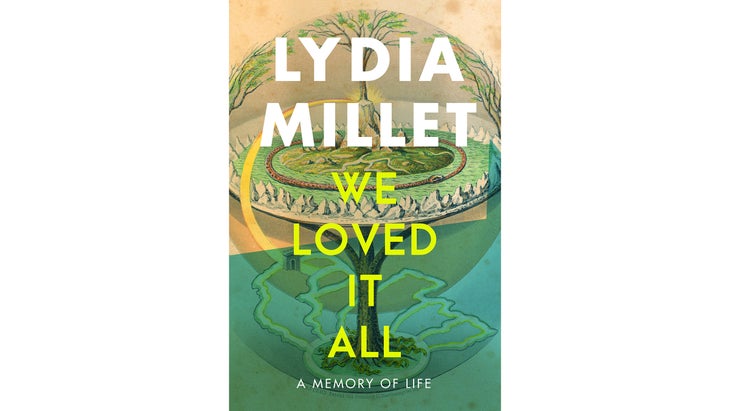
11. We Loved It All: A Memory of Life, by Lydia Millet
Can you feel the loss of something you never knew in the first place? This is the question novelist and conservationist Lydia Millet poses in her first nonfiction book, an examination of extinction, humanity, and our soul. We surround our children with animals, she notes, stuffed and plastic tigers and bears and dinosaurs, and teach them how to live through storybooks starring animals. But then something happens.
“The other animals don’t vanish from our lives as we grow up: they stick around, working in sales,” Millet writes. From the Geiko gecko to Tony the Tiger, “much is lost when the animals are turned into brand ambassadors: their reduction takes a toll on our imaginations.” Millet writes about “endlings,” an individual who is the last of its kind, and about species loneliness, that piercing longing we feel as we hold ourselves farther apart from our animal neighbors.
This is a memoir to be sure—from Millet’s first loves to her own shortcomings as a parent—but more than that, it is an uncomfortable mirror held up to all of us, a species disconnected, obsessed with our own reflection. Perhaps our duty as parents is, as much to care for our own children’s well being, to teach them to care for and about the other species who will—with any luck—serve as their companions.
MORE GREAT BOOKS TO ADD TO YOUR READING LIST:


